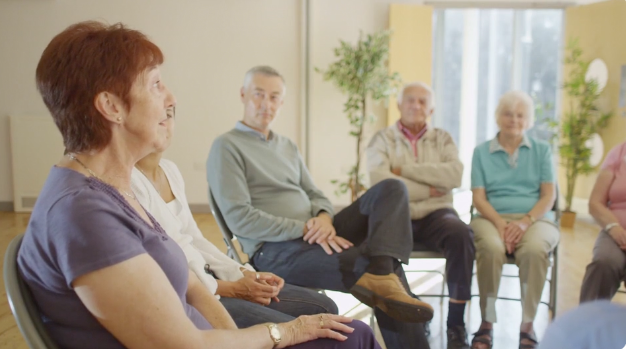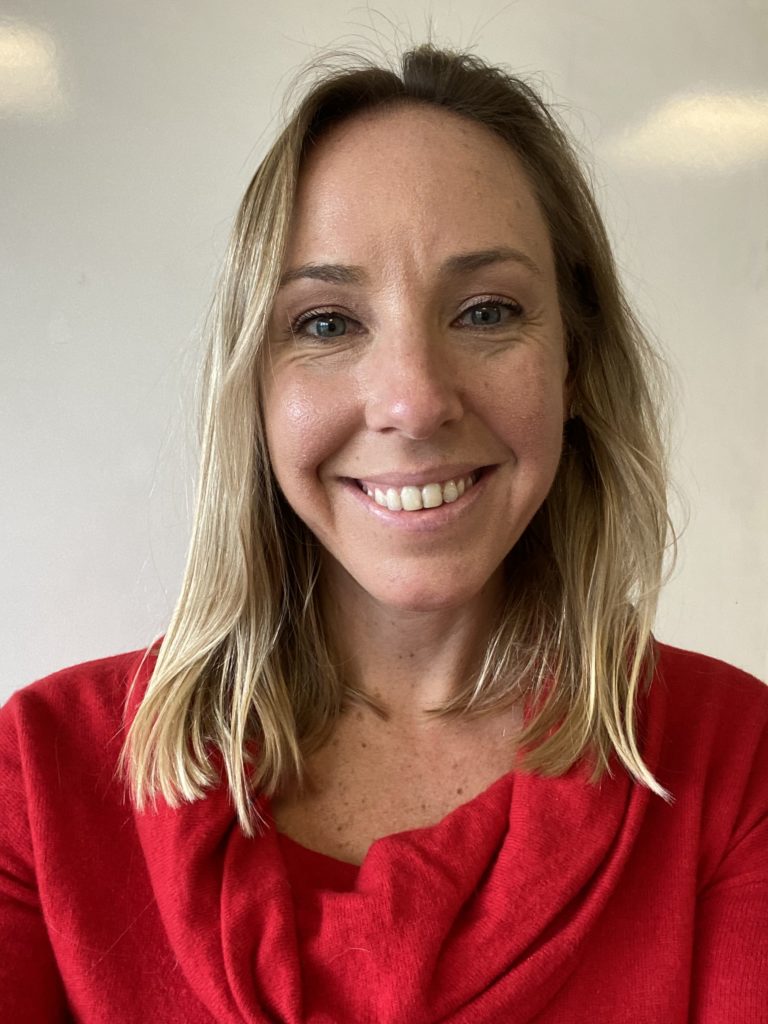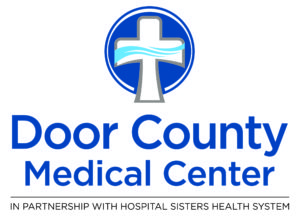Aging Happily
- Share
- Tweet
- Pin
- Share

Program tackles the depression, loneliness and anxieties of an aging population
“We are here to help people understand that it’s not normal to feel depressed. It’s possible to have quality of life and improve quality of life at any age.”
— Lauren Daoust, Director, Senior Life Solutions
About 15% of adults older than 60 deal with mental-health issues, according to the World Health Organization. That’s due, in part, to the difficult life transitions that most elders experience, according to Lauren Daoust, who directs and provides therapy for the Senior Life Solutions program at Door County Medical Center (DCMC).
“Retirement, grief, dealing with a serious illness and loss of independence are issues specifically related to the aging process that can be difficult to cope with,” she said.
The goal of DCMC’s Senior Life Solutions program is to curb the mental-health issues that can stem from these life changes. Formed in late 2020, the program provides intensive, confidential outpatient assistance to Door County elders in three forms: individual therapy, family therapy and group therapy.
The latter is the program’s main focus, and most of the people who attend individual therapy sessions also participate in the group sessions, Daoust said. The therapy group meets three days a week at DCMC, with a Zoom option available.
“It’s a safe place to come and talk, and just have the benefit of realizing that you’re not alone,” she said.
Daoust is part of a five-person program team that includes therapist Elizabeth Ziolkowski; Dr. Nina Jordania, a medical director who manages medications and provides psychiatric evaluations; Mo Nellis, a program nurse who monitors medications and collaborates with other medical providers; and Katie Monfils, an office patient coordinator who takes care of administrative needs for the program’s staff and helps patients with care needs.

Senior Life Solutions came together as a result of the community-needs assessment that DCMC and the Public Health department take turns conducting every three years. Recent assessments have revealed a demand for more robust mental-health care in the county, especially for adults 65 years and older, who make up an estimated 31.1% of Door County’s population, according to the U.S. Census.
The majority of Senior Life Solutions participants are referred to the program by someone else – often a family member, friend or doctor. And although people start attending therapy sessions for their own individual reasons, Daoust said loneliness is the most common one, followed by unexplained medical issues.
“If a person is coming in to see their doctor with aches and pains, physical symptoms, but there doesn’t seem to be a physical condition causing them, a lot of times that’s telling us that it might be more related to their mental health,” she said.
Before new clients join the program, they discuss their needs with Daoust to decide whether Senior Life Solutions is the right choice for them. If it’s not, she uses her 17 years of experience as a local social worker to connect them with other community resources that better suit their needs.
Despite the number of elders with mental-health challenges, older adults are 40% less likely than younger people to seek out or receive mental-health treatment, according to the Substance Abuse and Mental Health Services Administration. Although mental illness is stigmatized in every age group, Daoust said she thinks it’s especially prevalent in older generations that grew up with a different model for mental-health care.
“If somebody did need mental-health care, they were often institutionalized and thought there was something wrong with them,” she said. “So people are scared to talk about it.”
Stigma prevents some people from seeking help, but others don’t realize they have a mental-health issue because they’re experiencing depression or anxiety for the first time, according to Daoust. Still others overlook symptoms because they think they’re just a natural part of aging. According to a study by Mental Health America, more than half of people older than 65 believe it’s normal to feel depressed as they age.
“We are here to help people understand that it’s not normal to feel depressed,” Daoust said. “It’s possible to have quality of life and improve quality of life at any age.”
Throughout her years as a social worker, Daoust has worked with all age groups, but she finds the resiliency of the elderly to be particularly inspiring. Sometimes, she said, program participants just need a reminder of their own resiliency.
“A lot of times, working with older people in mental-health care, it’s helping them realize that they have already overcome so much in their life, and what they’re facing now can be overcome if they think about what they’ve already been through,” Daoust said.
Learn more about the Senior Life Solutions program and how to join by calling 920.746.3778 or visiting dcmedical.org/medical-services/senior-life-solutions. Anyone may refer an elder in their life to the program.
What to Look For
You or an elderly loved one may need mental-health support if the following signs are present. Of course, several of these symptoms are also associated with a normal aging process, but if they impair daily life – make it hard to get out of the house and continue for more than two weeks – they may be cause for concern, according to Lauren Daoust, who directs and provides therapy for the Senior Life Solutions program at Door County Medical Center.
• Physical pains that can’t be explained (e.g., headaches, stomach aches, constipation)
• Inability to concentrate or think clearly
• Appetite changes
• Trouble sleeping
• Continuous fatigue
• Loss of interest in things that used to bring happiness
• Feelings of hopelessness or worthlessness

